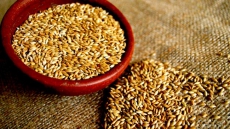Compared to Caesarean section deliveries, midpelvic deliveries with forceps and vacuum may cause greater trauma to mothers and babies, a new study has said.
Midpelvic operative vaginal deliveries using forceps or vacuum application are carried out when the baby's head is midway through the mother's pelvis.
Circumstances like foetal distress during labour makes it imperative for forceps and vacuum use as they have the potential to save lives, as these methods save time compared with a C-section delivery.
In 2014, the American College of Obstetricians and Gynaecologists encouraged increased use of forceps and vacuum delivery to reduce rates of deliveries by Caesarean section.
However, babies delivered through midpelvic operative deliveries had 80 per cent higher rates of severe complications. Mothers faced ten time more severe birth trauma due to tear and blood loss.

"Our study suggests that unless we can improve our ability to select candidates for midpelvic forceps and vacuum deliveries, or improve training in such deliveries, encouraging higher rates of midpelvic operative deliveries could increase rates of neonatal complications," said lead author Giulia Muraca, doctoral researcher at the University of British Columbia (UBC).
These complications usually involve birth traumas, as well as maternal complications such as severe postpartum haemorrhage, and obstetric trauma such as tearing, Muraca said.
Researchers feel that women should be informed of the harms as well as their consent should be taken when such surgical and medical interventions are to be carried out.
For the study, appearing in the Canadian Medical Association Journal, the team looked at data on 187,234 singleton births which included all midpelvic live or stillbirths via forceps or vacuum and C-section deliveries between 37 and 41 weeks of gestational age.
Of these, 76,755 women needed intervention because of poor uterine contractions and 110,479 because of foetal distress.


